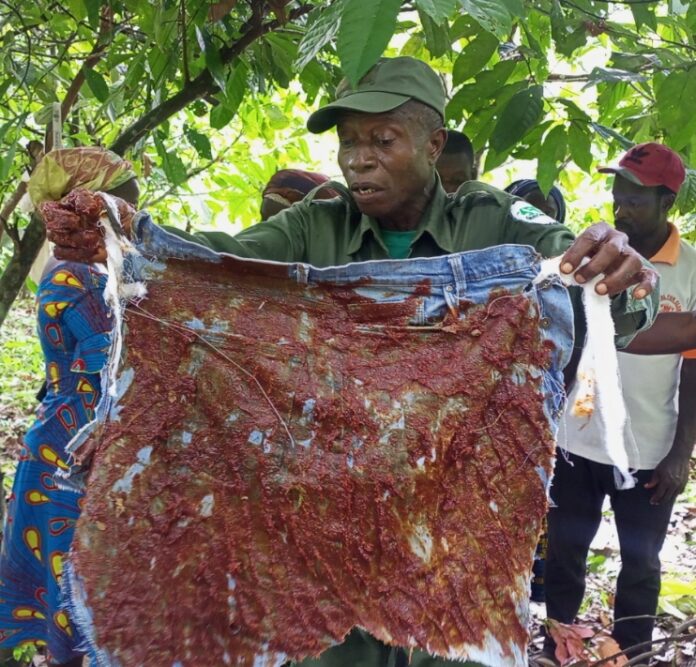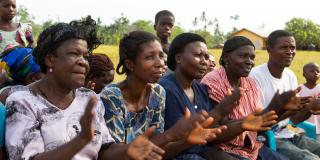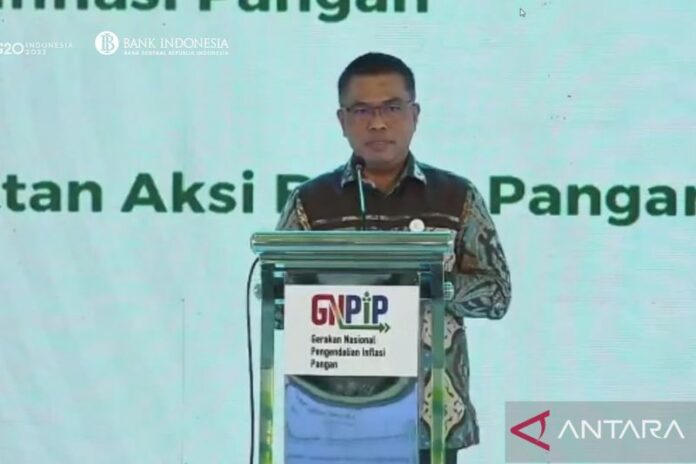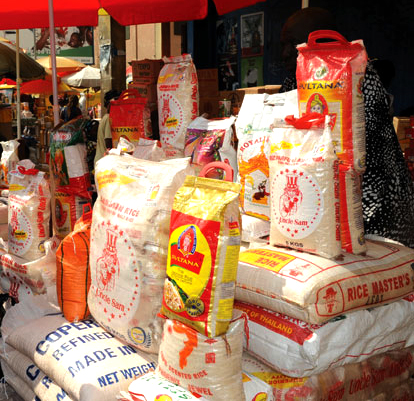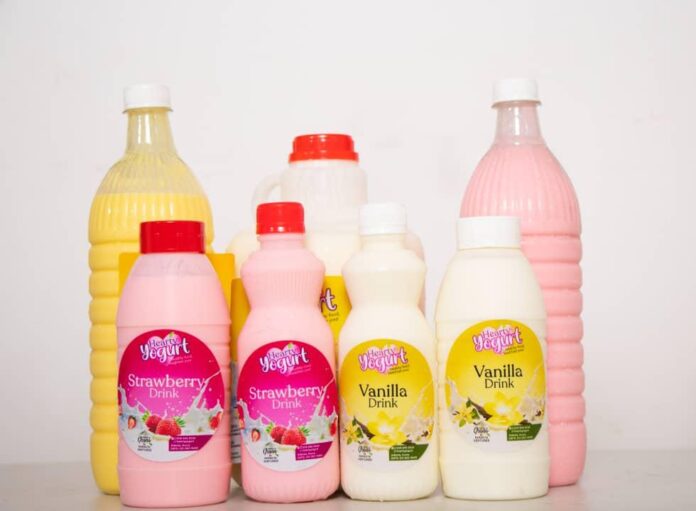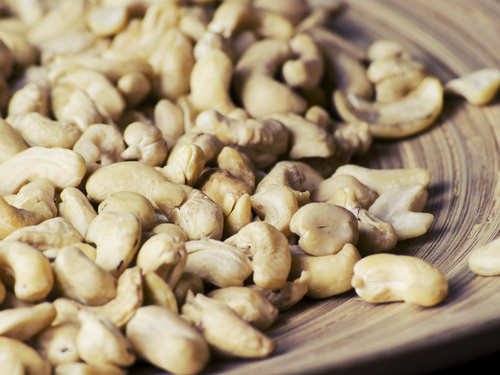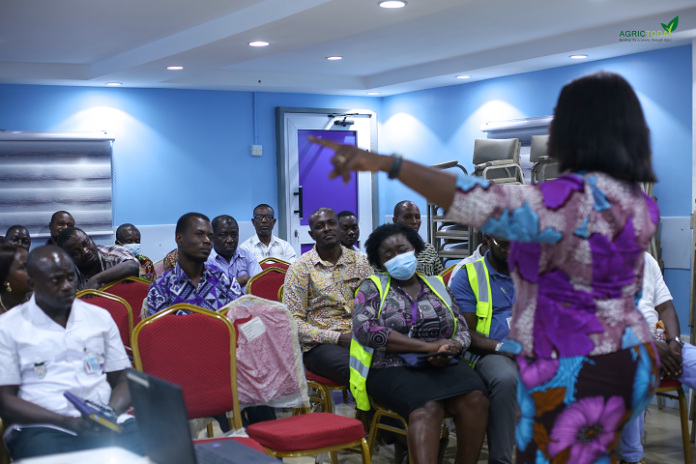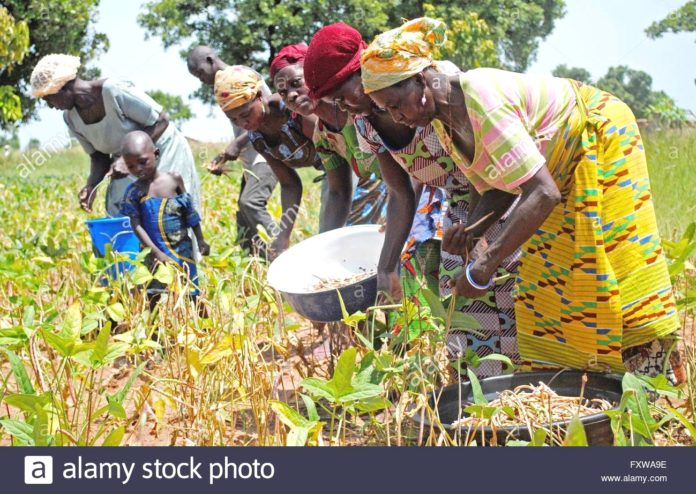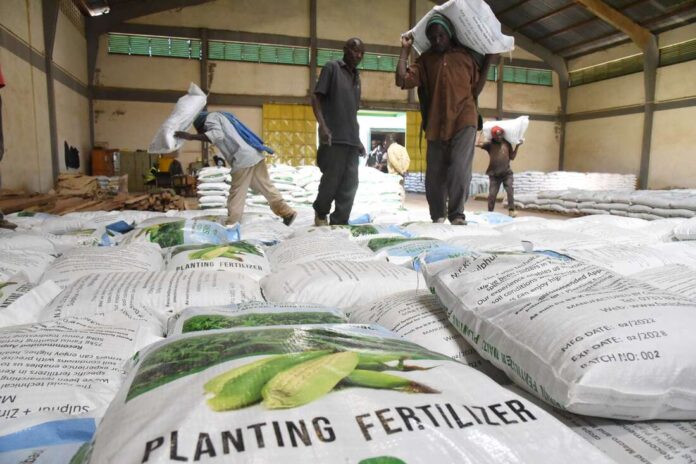As part of the efforts to help address challenges hampering the cocoa and forestry sectors in the country; Conservation Alliance has taken another judicious step by introducing the Human Elephant co-existence Project within the Kakum Conservation area in the Central Region of Ghana.
Three million youth in the agric sector are to be supported by Mastercard Foundation.
The MasterCard Foundation has rolled out an ambitious target of reaching up to three million youth in Ghana, with an intention to inspire and support their interests and participation in agriculture, Programme Lead-Agriculture Primary Production at MasterCard Foundation, Daniel Ninson, has disclosed.
Almost 70 percent of the target, according to Mr. Ninson, will be young women who participate in the agribusiness value chain.
Speaking in a plenary session on agriculture and agribusiness at the maiden Youth Economic Forum (YEF) in Accra yesterday, Mr. Ninson explained that MasterCard is influencing youth-interest with the design of the Foundation’s programmes.
“MasterCard Foundation is leveraging technology in order to provide these opportunities in the sector for the youth, as agriculture is at the centre of what we do,” he said.
With agriculture and agribusiness occupying 80-90 percent of the Foundation’s programme portfolio, Mr. Ninson however noted that the MasterCard Foundation has identified 13 value chains in the sector which have been categorised into four – tree crops, cereals and legumes, animal production and horticulture.
“What we have tried to do in the various value chains is mapping the various opportunities that we believe we can unlock to provide chances for young people and entrepreneurs who are looking forward to making impacts in the agribusiness chain,” he noted.
Indeed, the Foundation’s programming is currently focusing on three key things: which include provision of capacity building, access to finance and access to market for young agriculture entrepreneurs.
Meanwhile, CEO-Oceans Mall, Caroline Pomeyie – who was on the panel, asked organisations such as the MasterCard Foundation to direct more assistance to the fisheries sector in terms of capacity building and funding.
She said the fisheries sector, which is a very lucrative sector, needs the support of all stakeholders to thrive.
“The fisheries value chain is still at a rudimentary level, and we have to prioritise development of the sector through deepened application of technology for ease of doing business,” she said.
Ocean Mall leverages technology advancements to build an end to end supply chain platform in Ghana’s fisheries sector, while contributing significantly to reducing food loss and waste.
The company currently deploys basic technologies that facilitate growth and enhancement of the fisheries supply chain.
Equally, Caroline Amanor, CEO-Maku Foods Enterprise who was on the panel, underscored the need for young people to remain resilient while undertaking business in the agribusiness value chain.
Ms. Amanor said focus and determination is the only way to success given the rarity of sponsorship that comes from organisations.
She also called on MasterCard Foundation to further deepen and boost support for agribusiness entrepreneurs in order to whip-up more interest in the value chain.
The YEF, which is on the theme ‘Youth Voices & Action for Economic Growth, Resilience and Empowerment’, preceded this year’s Ghana Economic Forum (GEF) that officially begins today October 25, 2022.
National Food Agency continues to be vigilant about food supply.
The National Food Agency has remained vigilant about food supply amid the challenges of a global recession and a potential food crisis, Deputy for Food Availability and Stabilization at the agency I Gusti Astawa said.”
We must be vigilant, we must not be fixated on proverbs as if our area is fertile, even though the real conditions on the ground are that there are areas that are in surplus, and there are areas that are in deficit. This is our collective role,” he remarked at the launch of the South Sulawesi Food Inflation Control National Movement (GNPIP), which was followed from Jakarta on Monday.
He said that currently, the availability of rice in Indonesia is sufficient for the next 88 days, the supply of corn is sufficient for the next 52 days, red onions 39 days, large chilies 12 days, beef 82 days, broiler meat 62 days, sugar consumption 149 days, and cooking oil 77 days.
Meanwhile, soybeans stocks are expected to be sufficient for the next seven days, so it is necessary to pay attention to the addition of supplies, especially for tofu and tempeh craftspersons.
According to him, the government needs to have sufficient food reserves so that food prices are not controlled by speculators.
“There are five types of food reserves that need to be maintained, namely the food reserves of the central government, provincial governments, district or city governments, village governments, and the community,” he said.
The National Food Agency also is continuing to strive so that the State Logistics Agency (Bulog) can absorb farmers’ production to meet government reserves. Currently, Bulog has a supply of around 700 tons of rice, which needs to be augmented.
“Currently, we are fixing the Presidential Regulation (Presidential Regulation) on food reserves. We will manage three main commodities whose reserves we will manage, namely rice, corn, and soybeans, so that the reserves are controlled by Bulog to control prices,” he said.
Astawa expressed the hope that the efforts made by the government will keep the inflation rate from exceeding the rate of economic growth.
“We are also mobilizing food supplies from areas that are experiencing a surplus to areas that are experiencing a deficit,” he said.
President Joko Widodo (Jokowi) earlier urged households to utilize the front yards of their homes to plant foods, such as chillies, to reduce the impact of the ongoing food crisis on their family’s food needs.
“Regarding chilli, households in villages ought to plant chilli, either in polybags or in their front yards, so there will be no longer chilli scarcity or a sudden surge in chilli prices,” he said while observing and planting dwarf coconuts in Giriroto Village, Boyolali District, Central Java, on Thursday, according to a statement received here the same day.
According to the President, the current global food crisis has been caused by ongoing global conflicts that have disrupted the food supply, with at least 300 million people in various countries facing food shortages and famine.
If no solutions are conceived to address the issue, the population affected by the global food crisis could reach up to 800 million, he cautioned.
Besides urging households to produce their own food, Widodo also advised them to utilize unused lands for planting foods, such as dwarf coconuts.
Dwarf coconuts can be processed into various food products, such as coconut sugar and drinks once the coconuts are harvested 2–2.5 years after planting, he pointed out.
“In a year, a coconut tree can produce up to 180 coconuts that can be made into ant sugar, coconut, oil, and sold as whole fruit (or) as a fresh drink,” he said.
Vendors lament astronomical rise in prices of food items.
Food vendors have lamented the frequent increases in the prices of food items on the market.
The price of 25-litre cooking oil is said to have jumped from GH¢380 to GH¢1000 within the last three months.
The price of a 25 kg bag of rice has shot up from GH¢195 last year to GH¢390, while a carton of chicken has shot up from GH¢125 per 10 kg in July to GH¢300.
“A carton of frozen chicken used to sell at GH¢260 but now, it is going for GH¢300. If I knew it was going to be increased, I would have bought a lot for storage, but there isn’t money to even make that large purchase”, one seller said.
Some food vendors said, they are only in business to keep their customers, as they are making no profits.
“I am unable to increase prices, so it is only a small margin that I have added just to maintain my customers”, another said.
Data from the Ghana Statistical Service for September 2022 showed that, food inflation was 37.8% while non-food inflation was 36.8%.
Inflation for locally produced items was 35.8% while inflation for imported items was 40.7%.
Western Region recorded the highest food inflation (47.0%) and Eastern Region, the highest non-food inflation (42.0%). Eastern Region recorded the overall highest inflation (41.0%) followed closely by Western Region (40.2%) and Greater Accra Region (39.3%).
Transport (68.7%) recorded the highest rate of inflation in the Eastern Region, for food inflation in the Western Region, Fish and Other Seafood had the highest rate of inflation at 64.0%.
More than 90 percent of the sampled items recorded an increase in price.
Hearty Delight Foods Introduces New Yogurt Products.
The Founder of Hearty Delight Foods, Madam Matilda Akosua Boahemaa said: “Our food products are designed for individuals, small to medium size companies willing to optimise and boost their performance”.
Hearty Delight Foods is a nutrition and Health Brand under Papakye Ventures. It started with healthy food services and evolved into a yoghurt manufacturing company because of the high demand for the freshly prepared yogurt category of their products, she explained.
“Our philosophy and fundamental purpose is to make the future better and worth living by building a first class organization that caters for our people, our customers and the world through quality health and nutrition”.
Madam Boahemaa also disclosed that the company currently makes diary and non-diary yogurts for the Ghanaian market.
She mentioned the categories which include plain dairy yogurt (Hearty Yogurt brand). All these according to her come with different flavouring like Strawberry, vanilla, pineapple, among others. These are nicely packaged for convenience in both 330mls and two litres and can be ordered online.
These yogurts provide fiber that promotes efficient digestion that normalises bowel movements; helps maintain bowel health, lowers cholesterol levels and control blood sugar levels. It also aids in achieving healthy weight, Madam Boahemaa said.
She was quick to add: “All our products contain probiotics. Probiotics are friendly bacteria that help prevent and treat some illnesses promoting a healthy gut and immune system.
Per order, we can also make non-dairy products formulated to help vegans and vegetarians”.
Papakye Ventures, the umbrella of Hearty Delight Foods is built on the philosophy of building a first-class organization that caters for the world through quality health and nutrition, she noted.
“We have plans to develop quality diary and non-products at lower price points to meet the needs of the malnourished in Ghana. This we believe will be more feasible as we develop new market in Ghana”.
Hearty Delight Foods is currently not in the international market. There are more opportunities to exploits locally and we want to ensure that we meet local demands before going international.
We don’t want to run faster than our strength and disappoint internal partners, but we are walking diligently to get there”.
We are sure to speed up when we develop the muscle to get there soon. We are not in haste because we believe we are doing the right thing and have the support of the almighty, according to the founder.
“We are a team of passionate people whose goal is to improve everyone’s life through healthy foods products.We build great food products to solve your business and individual problems.
We want Hearty Delight Foods to build one of the best-in-class manufacturing facilities in Ghana. We also want to excel in business excellence and built a profitable company that is not only interested in making money but creating value for all stakeholders especially for our communities we work with”.
We also want to see ourselves as a company doing business beyond the borders of Ghana and the West African Sub region”.
Cashew exports plunge deeper to 38% in September at $22.71 million.
Contracting for the last eleven months, the country’s cashew exports contracted by 38 per cent to USD 22.71 million in September succumbing to intense competition in the international markets. The exports have been declining since November last year, according to the data of the commerce ministry.
The data showed that the exports dipped by 34 per cent in April, about 30 per cent in May, about 6 per cent in June, 26.62 per cent in July and 31.5 per cent in August.Karnataka Cashews Manufacturers Association Vice President Tukaram Prabhu said that withdrawal of export incentives under ‘Vishesh Krishi and Gram Udyog Yojana’ too is impacting the outbound shipments.
“At present, we have no incentives to push shipments, though there is good demand in global markets. Our quality is much better than Vietnamese cashew. It is also a labour-intensive sector,” Prabhu said.
He urged the government to consider extending export incentives to boost exports. According to him, India’s edible cashew kernel production stood at 3,50,000-3,70,000 tonnes per year.
According to a cashew exporter from Kerala, domestic prices are 15 per cent higher than the export price, so traders are preferring to sell here.
“Demand in export destinations is not much of an issue for declining exports. The main reason is high cost of processing in India. It is four times more than that of Vietnam which is a major cashew exporter,” he said, adding, Vietnamese exporters are using machines, but here still “we are doing most of things manually”.
Roughly, the cost of processing in India is about Rs 3,600 per bag of 80 kilogram, as compared to about Rs 800 per bag in Vietnam, the exporter said. Domestic prices stand at about Rs 630 per kilogram in the wholesale market, while exports price is about Rs 560 per kilogram.
According to the data of Agricultural and Processed Food Products Export Development Authority (APEDA), exports were down 25.16 per cent to USD 113 million during April-August this fiscal.
Besides Vietnam, Indian exporters are also facing tough competition from African countries, including Guyana, Mozambique, Tanzania and Ivory Coast.
The African nations have formed ‘African Cashew Alliance’ to boost the industry in that continent.
The Indian cashew industry exports different grades and products like cashew kernels (wholes and broken), cashew nut shell liquid (CNSL), cardanol (purified CNSL) and flavoured kernels.
The country exports to about 80 countries, including the US, UAE, the Netherlands, Saudi Arabia, Germany, Japan, Belgium, Korea, Spain, France, the UK, Kuwait, Singapore, Qatar, Greece, Italy, Iran and Canada.
Kerala, Tamil Nadu and Karnataka are major cashew exporting states in the country.
PPRSD urged exporters to intensify their hard work to avert future export bans.
Following recent notifications relating to non-compliance with certain import requirements of some of Ghana’s vegetable exports to the UK, the Plant Protection and Regulatory Services Directorate (PPRSD) (KIA) under the Ministry of Food and Agriculture has had a Stakeholders meeting with exporters to discuss measures to avert any possible future ban.
GITAC commits to supporting women in agribusiness with seed funding.
Women contribute about 60% of the agriculture sector, and almost all are smallholder farmers. In spite of contributing immensely to safeguarding food security, in Ghana, women are unable to access financial assistance to upscale production.
KTDA receives Sh5.2bn fertiliser from Russia for sale to farmers.
Kenya Tea Development Agency (KTDA) has received Sh5.2 billion fertiliser from Russia for sale to farmers at subsidised rates under the government-backed scheme.
The 940,000 bags of fertiliser are landing in Kenya at Sh5,617 for 50 kilos, but it will be sold to tea farmers at Sh3,500 in line with the government directive.
The latest consignment is an addition to 720,000 bags the agency received in September.“We are receiving the consignment on Tuesday to supply to farmers at a subsidy rate as it was directed by the government,” said a KTDA official.
The consignment will help farmers cut the cost of production and improve their productivity. Before the subsidy, the cost of a 50-kilo bag was Sh6,500.
The fertiliser will be ferried from the Port of Mombasa to Nairobi via the standard gauge railway (SGR) for onward transportation to the farmers.
This is after KTDA and Kenya Railways signed an agreement that would see cargo meant for export or import by the agency transported through the SGR to cut the cost of ferrying goods.
President William Ruto announced the subsidy in one of his earliest directives after assuming power in September.
The National Cereals and Produce Board (NCPB) has distributed nearly three-quarters of the planting fertiliser under the subsidy programme.
Last week, NCPB said it has supplied 307,200 bags of DAP fertiliser for sale to farmers across parts of the country that are preparing for a short rain crop.
The Board said it is working closely with the Council of Governors to enhance the distribution of the commodity through the regional government outlets.
NCPB will be opening county government-supported satellite-selling centres.
The board said it is interacting with farmers and other members of the public through social media and vernacular radio stations to enhance uptake of the subsidised fertiliser.
Ghana’s import of tomatoes from Burkina reaches US$400m annually.
Trade data from the Ghana Vegetable Producers and Exporters Association (Ghana Vegetables) indicate that annual tomato import from neighbouring Burkina Faso has hit a staggering US$400million from an estimated US$99.5million in 2018.
Whereas the Ghana Incentive-Based Risk-Sharing System for Agricultural Lending (GIRSAL) has confirmed that the country currently imports 90 percent of its fresh tomato from Burkina Faso, it also added that the current national consumption demand of tomato is in excess of 800,000 metric tonnes per annum.
The president of Ghana Vegetables, Dr. Felix Kamassah, however attributed the rising imports and slump in local production to cost of fertilizer and quality seeds, and the lack of mechanisation and machinery
Our farmers grow the Burkina variety in Ghana, but the difference is sustainability and irrigation by mechanisation which is lacking here,” Dr. Kamassah said.
Ghana Vegetables, he indicated, is focusing on saving at least half of the amount internally by boosting production and increasing supply up to, at least, 40 percent.
More than 70 percent of tomato supply in major supermarkets and malls in Ghana are sourced from the Netherlands, Burkina Faso and other countries, data from Ghana Vegetables have shown.
Request to the Gov’t.
The Association wants government to support research institutions in seed development to grow seedlings in a greenhouse environments to enable year-round nursery.
It requested that mechanised irrigation, inputs and access to capital be prioritised in fruit and vegetable cultivation to combat changing trends in the current erratic climate occurrences, as well as governmental support and policies to lure the youth into vegetable farming.
“The PFJ policy must devote a chunk of resources to vegetable cultivation. That is the only way to increase support to farmers in the sector and whip up interest. We want the Food and Agriculture Minister to engage the horticulture industry on the way forward,” he said.
Recent climatic conditions in Europe have been increasing demand of tomato, as lack of sunshine, and heavy rains in some parts of that continent are creating unfavourable conditions for the fruit’s cultivation.
But Dr. Kamassah indicated this is the time for government to support local producers to meet rising demands in the European market.
Setbacks in tomato production.
GIRSAL has identified that the slump in local tomato production is attributed to most farmers cultivating less than 10 metric tonnes per hectare against the potential of 20 metric tonnes per hectare.
Besides, poor agronomic practices, lack of varieties for commercial agro processing, as well as farmers still planting local varieties – typically with high water content, many seeds, poor colour, and low brix level – have all been identified as key production setbacks.

